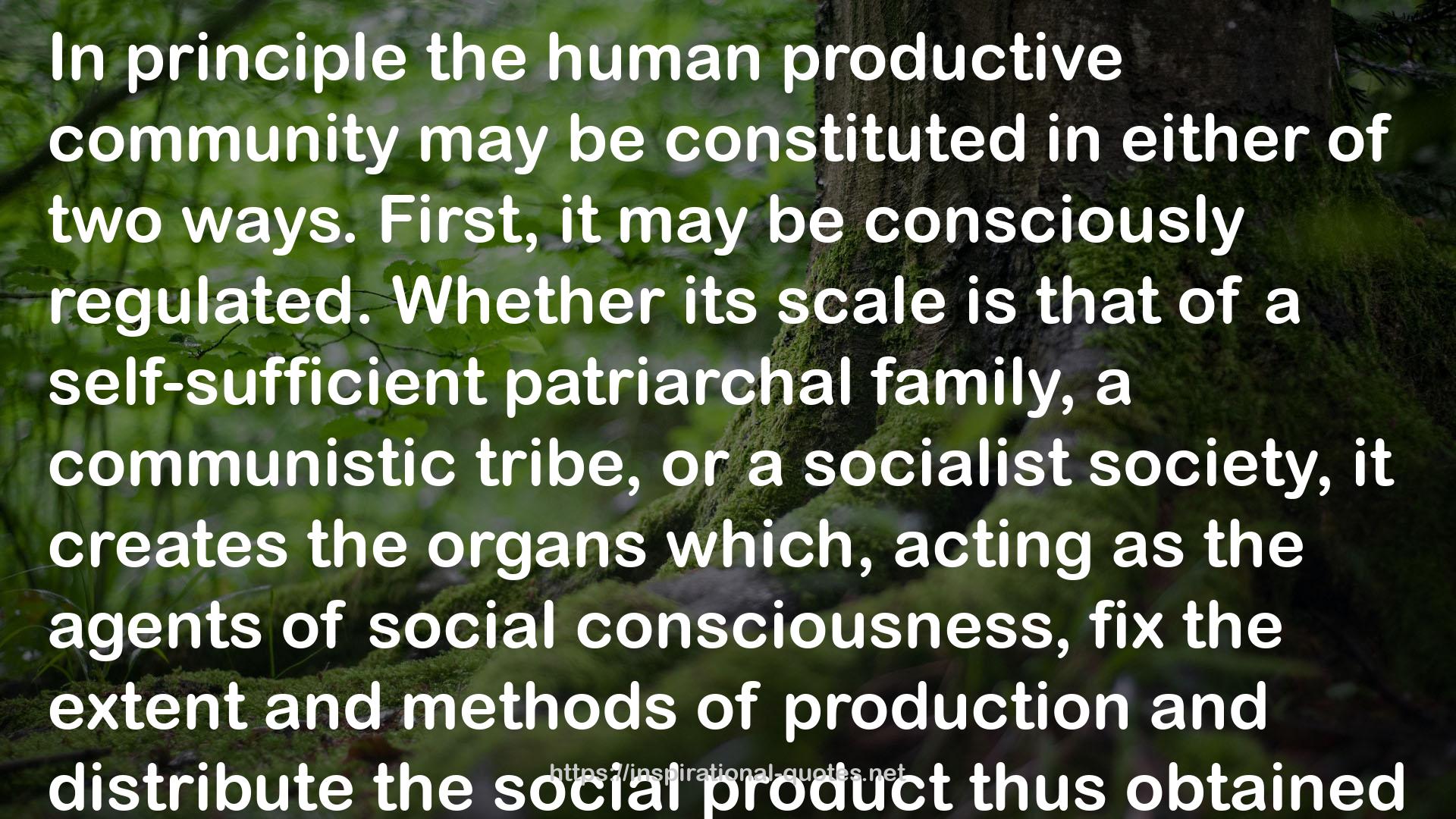" In principle the human productive community may be constituted in either
of two ways. First, it may be consciously regulated. Whether its scale
is that of a self-sufficient patriarchal family, a communistic tribe, or
a socialist society, it creates the organs which, acting as the agents
of social consciousness, fix the extent and methods of production and
distribute the social product thus obtained among the members. Given the
material and man-made conditions of production, all decisions as to
method, place, quantity and available tools involved in the production
of new goods are made by the /pater familias, /or by the local regional
or national commissars of the socialist society. The personal experience
of the former gives him a knowledge of the needs and productive
resources of his family; the latter can acquire a like knowledge of the
requirements of their society by means of comprehensively organized
statistics of production and consumption. They can thus shape, with
conscious foresight, the whole economic life of the communities of which
they are the appointed representatives and leaders in accordance with
the needs of the members. The individual members of such a community
consciously regulate their productive activity as members of a
productive community. Their labour process and the distribution of their
products are subject to central control. Their relations of production
are directly manifest as social relations, and the economic relations
between individuals can be seen as being determined by the social order,
by social arrangements rather than by private inclination. Relations of
production are accepted as those which are established and desired by
the whole community.
Matters are different in a society which lacks this conscious
organization. Such a society is dissolved into a large number of
mutually independent individuals for whom production is a private matter
rather than a social concern. In other words, its members are individual
proprietors who are compelled by the development of the division of
labour to do business with one another. The act by which this is
accomplished is the exchange of commodities. It is only this act which
establishes connections in a society otherwise dismembered into
disparate units by private property and the division of labour. Exchange
is the subject matter of theoretical economics only because, and to the
extent that, it performs this mediating function in the social
structure. It is of course true that exchange may also take place in a
socialist society, but that would be a type of exchange occurring only
after the product had already been distributed according to a socially
desired norm. It would therefore be merely an individual adaptation of
the distributive norm of society, a personal transaction influenced by
subjective moods and considerations. It would not be an object for
economic analysis. It would have no more importance for theoretical
analysis than does the exchange of toys between two children in the
nursery, an exchange which is fundamentally different in character from
the purchases made by their fathers at the toy shop. For the latter is
only one element in the sum of exchanges by which society realizes
itself as the productive community which it really is. A productive
community must express itself in such acts of exchange because only in
this way can the unity of society, dissolved by private property and the
division of labour, be restored. "
― , Finance Capital: A study in the latest phase of capitalist development
